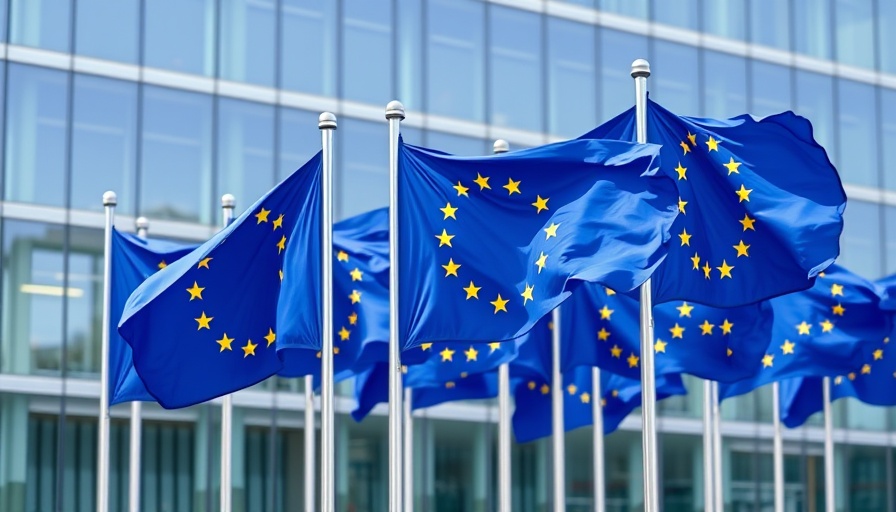
European Leaders Reassess Their Dependence on U.S. Technology
In recent months, a growing concern among European leaders has emerged regarding their reliance on American technology. Tensions heightened after President Donald Trump sanctioned Karim Khan, the chief prosecutor at the International Criminal Court (ICC), over the controversial issuance of arrest warrants for Israeli officials. This action raised flags about the implications of U.S. tech companies' compliance with government directives, leading European nations to reconsider their digital partnerships.
The Microsoft Incident: A Wake-Up Call
The incident became a tipping point when Microsoft shut down Khan’s email account under the sanction. Casper Klynge, a former diplomat turned Microsoft executive, described this move as "the smoking gun" that European governments needed to rethink their dependence on U.S. tools and platforms. Following this, reports surfaced that some ICC staff had migrated to alternatives such as Swiss email service Proton, prompting a broader discussion about sovereignty in digital communications.
Fiscal Autonomy and Future Predictions
As European nations weigh the risks of reliance on foreign technology, there’s increasing advocacy for fostering homegrown solutions. Experts suggest that decentralizing tech dependencies not only enhances cybersecurity but can also invigorate local economies. Building robust ecosystems around European tech firms could also help retain critical data within the continent, reducing vulnerability to potential sanctions or political disputes.
Current Challenges and Opportunities
However, the journey towards digital autonomy is fraught with challenges. For many, the allure of U.S. technology lies in its innovative edge and the seamless integration of services. European institutions are striving to balance the immediate benefits of adopting cutting-edge technology solutions with the necessity of safeguarding citizens' data and privacy rights.
Broader Implications for Tech Governance
The push for more European-dedicated tech solutions brings forth a myriad of governance and regulatory questions. As governments rally around this cause, discussions about standards, interoperability, and data protection will take center stage. Countries that previously relied mainly on the U.S. are now exploring partnerships with Asian tech corporations or developing their own capacities. This is a critical moment not only for the technology sector but also for political alliances and international relations.
Conclusion: A Crucial Time for Action
As the global tech landscape continues to evolve, so too must the strategies we adopt. European nations are at a pivotal crossroads where the dependency on U.S. technology conveniences complicate the need for sovereignty and security in digital infrastructure. It is essential for leaders to weave resilience into their tech strategies that cater both to innovation and national interests.
The path ahead requires decisive actions in developing local tech capabilities while navigating international relationships wisely. The apprehension currently felt by European leaders could ultimately lead to a robust reimagining of the global technology landscape, where diverse and sovereign solutions thrive.
 Add Row
Add Row  Add
Add 



Write A Comment